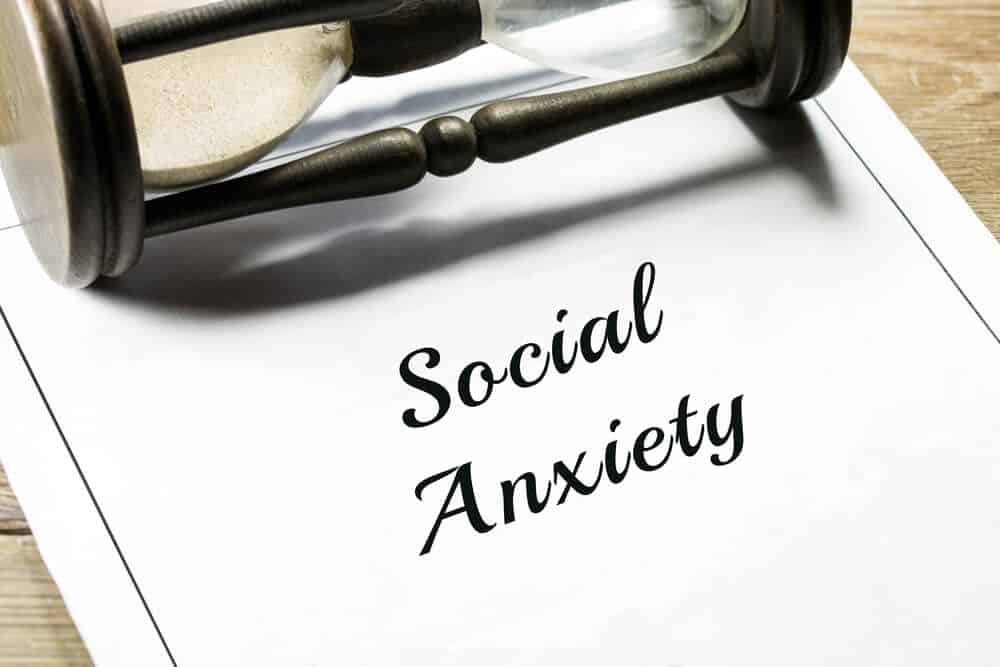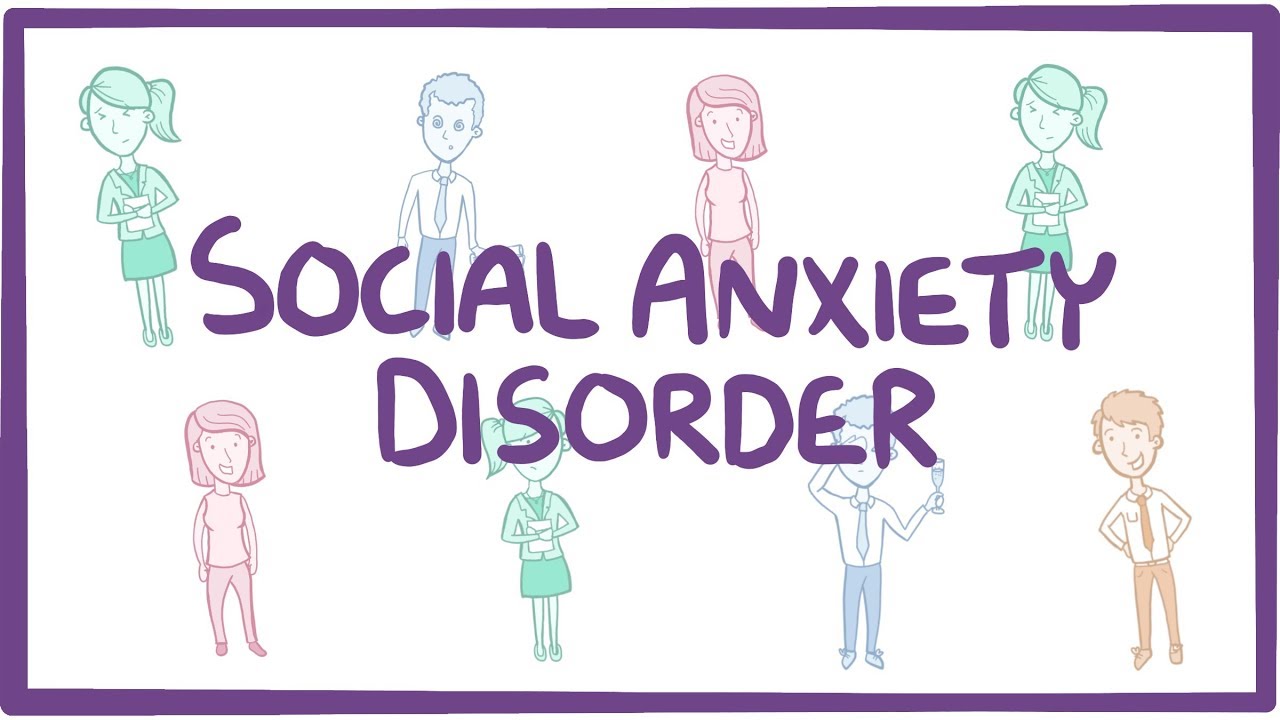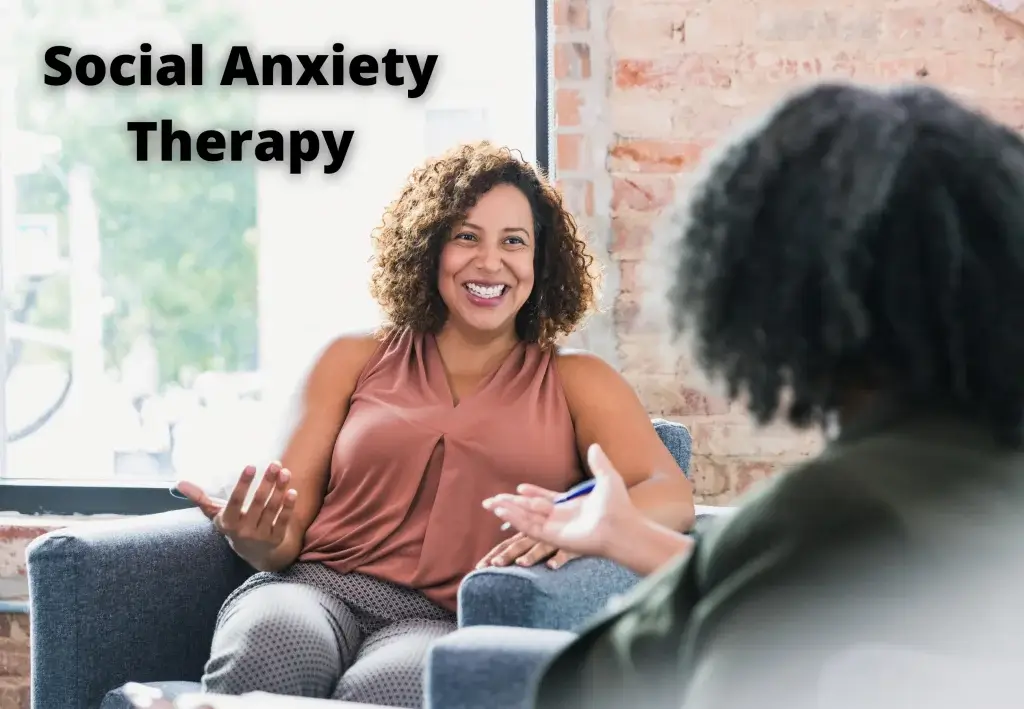Do you struggle with social anxiety? If so, you are not alone. Social anxiety disorder is the most common type of anxiety disorder, and it affects millions of people around the world. People with social anxiety often feel overwhelmed and anxious in social situations. They may fear judgment or criticism from others, and they may worry that they will say or do something that will embarrass them. If you suffer from social anxiety, there are therapies that can help you overcome your fears and improve your life. In this blog post, we will discuss social anxiety therapy and how it can help you overcome your symptoms.
Contents
What Is Social Anxiety?
 Social anxiety is a feeling of worry or fear when you are in social situations. You may feel like you are being judged by others, that you will make a mistake, or that you will be embarrassed. This disorder is often accompanied by physical symptoms, such as a racing heart or sweating.
Social anxiety is a feeling of worry or fear when you are in social situations. You may feel like you are being judged by others, that you will make a mistake, or that you will be embarrassed. This disorder is often accompanied by physical symptoms, such as a racing heart or sweating.
It can be a result of many things, including genetics, past experiences, or environmental factors.
Signs of Social Anxiety

There are many signs of social anxiety as well. Some of these are:
- isolating yourself from others
- not speaking up in class or at work
- perfectionism
- negative self-talk.
- making excuses to avoid social situations
Causes of Social Anxiety

There are many causes of social anxiety. Some of these are:
Genetics
Social anxiety may be passed down from parents to children. This is because social anxiety is often caused by a combination of genetic and environmental factors.
Past Experiences
If you have had negative experiences in social situations, this may increase your risk of developing a social anxiety disorder. For example, if you were ridiculed or laughed at by others, this could lead to feelings of self-doubt and insecurity when around other people.
Environmental Factors
The environment in which you grow up can also contribute to the development of social anxiety disorder. If you live in a culture that values shyness or where there is pressure to be perfect, it’s more likely that you will develop social anxiety.
Negative Impacts of Social Anxiety

There are many negative impacts of social anxiety. Some of these are:
Inability to Function in Social Situations
If you have social anxiety, you may find it difficult to function in social situations. This can lead to problems at work or school and can affect your relationships with others.
Depression and Low Self-Esteem
People who have social anxiety often experience depression and low self-esteem. This is because they feel like they are not good enough for other people and that they do not deserve happiness.
Isolation from Others
People who have social anxiety often isolate themselves from others. This is because they are afraid of being judged or rejected by others. This can lead to loneliness and a lack of social support.
Treatment Options for Social Anxiety Disorder

The treatment of social anxiety disorder depends on the severity of symptoms. If you have mild to moderate symptoms, your doctor may recommend therapy or medication. If you have severe symptoms, you may need to see a specialist.
Some treatment options are:
Medications
Medications are often prescribed to people who have a social anxiety disorder. These medications can help reduce symptoms and allow people to function better in social situations.
Therapy
Therapy is a common treatment for social anxiety disorder. This type of therapy can help you understand your thoughts and feelings about social situations and learn how to manage them effectively.
Self-Help Strategies
There are also many self-help strategies that can be helpful for people with social anxiety disorder. Some of these are:
Eating Good Food
This means eating a balanced diet that includes plenty of fruits, vegetables, and whole grains. It’s also important to drink plenty of water and avoid caffeine and alcohol.
Exercising Regularly
Exercise is a great way to reduce stress and anxiety. It can also improve your mood and increase your energy level.
Getting Enough Sleep
It’s important to get enough sleep each night so that you feel refreshed and energized the next day.
Practicing Relaxation Techniques
Relaxation techniques such as yoga, meditation, or deep breathing can help you calm down when you are feeling anxious.
Setting Realistic Goals
People with social anxiety often set high standards for themselves and then become frustrated when they are not able to meet these standards. It’s important to set realistic goals and celebrate each accomplishment, no matter how small it may seem.
It’s also important to accept yourself for who you are. This means that you should embrace your quirks and flaws and understand that you are not perfect.
Social Anxiety Therapy

There are many therapies for social anxiety disorder. The most common type of therapies are:
CBT
CBT is a therapy that helps you understand your thoughts and feelings about social situations. It can also help you learn how to manage them effectively. Therapies prove to be effective in reducing anxiety and improving quality of life. This therapy also usually lasts around 16 sessions.
ERP
ERP is a therapy that helps you face your fears head-on. It can be effective in reducing symptoms of social anxiety disorder. This therapy usually lasts around 12 sessions.
If you are experiencing social anxiety, it is important to seek help from a professional. There are many treatments available that can help you manage your symptoms and improve your quality of life. If you live in a culture that values shyness or where there is pressure to be perfect, it’s more likely that you will develop social anxiety.
Talk Therapy
Talk therapy is a type of therapy that involves talking about your thoughts and feelings with a therapist. This can help you understand them better and find solutions to problems.
DBT
This is one of the social anxiety therapy. DBT is a therapy that helps you learn how to regulate your emotions. It can also help you improve your relationships with others.
Family Therapy
Family therapy is a type of therapy that involves family members and focuses on the family system. This type of therapy can help family members understand each other better and resolve conflicts.
Group Therapy
This is one of the social anxiety therapy. Group therapy is a type of therapy that involves meeting with a group of people who have similar problems. This can be helpful because it allows you to share your experiences with others and receive support from them. This also can help reduce feelings of isolation.
Individual Therapy
Individual therapy is a type of therapy that involves meeting with a therapist one-on-one. This can be helpful because it allows you to focus on your own problems and receive personalized support.
Art Therapy
Art therapy is a type of therapy that involves using art to express your thoughts and feelings. This can be helpful because it allows you to communicate in a different way and explore your emotions.
Music Therapy
Music therapy is a type of therapy that involves using music to express your thoughts and feelings. This can be helpful because it allows you to communicate in a different way and explore your emotions.
Pet Therapy
Pet therapy is a type of therapy that involves interacting with animals. This can be helpful because it allows you to connect with an animal and receive their support. This also can help reduce feelings of loneliness.
Conclusion
Social anxiety is a disorder that affects many people. This can be caused by a number of factors, such as genetics, environment, or life experiences. It can lead to a number of problems, such as social isolation and poor quality of life. However, there are many therapies that can help reduce anxiety and improve your life. These therapies include CBT, talk therapy, DBT, family therapy, group therapy, individual therapy, art therapy music therapy, and pet therapy. Choose the one that is best for you and get started on the road to recovery.
A Word From Therapy Mantra
Your mental health — your psychological, emotional, and social well-being — has an impact on every aspect of your life. Positive mental health essentially allows you to effectively deal with life’s everyday challenges.
At Mantra Care, we have a team of therapists who provide affordable online therapy to assist you with issues such as depression, anxiety, stress, relationship, OCD, LGBTQ, and PTSD. You can take our mental health test. You can also book a free therapy or download our free Android or iOS app.


